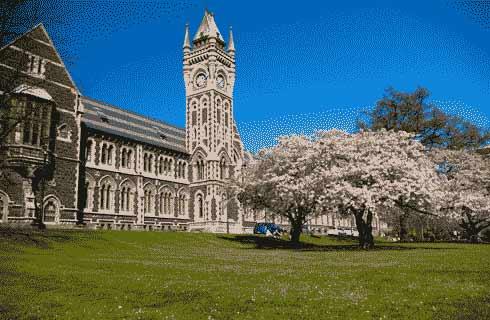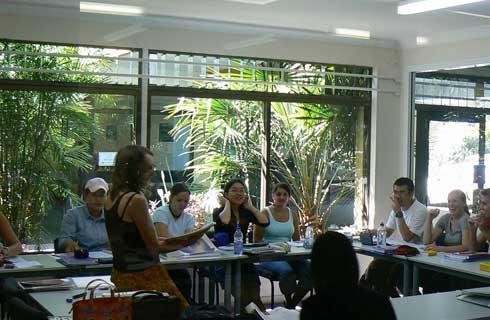保护科学与实践理学学士
Bachelor of Science in Conservation Science and Practice

学历文凭
Bachelor Degree

专业院系
Faculty of Environment

开学时间

课程时长

课程学费

国际学生入学条件
IDP—雅思考试联合主办方

雅思考试总分
6.5
- 雅思总分:6.5
- 托福网考总分:90
- 托福笔试总分:570
- 其他语言考试:PTE (Pearson Test of English - Academic): overall score of 65, with not less than 60 in each of reading, writing, listening, and speaking
CRICOS代码:
申请截止日期: 请与IDP联系 以获取详细信息。
课程简介
The BSc in Conservation Science and Practice allows students to pursue one of two majors:Wildland Conservation and RecreationLandscape Conservation and ManagementThe major in Wildland Conservation and Recreation focuses on portions of the landscape where conservation values, including recreation and aesthetic values, are the priority land-use activities, and where these activities intersect with other values, priorities, and uses. Topics of study include: the promotion of and advocacy for conservation; integrated management of legally designated parks and protected areas; conservation area design; and human activities across these areas, including recreation, ecotourism and the associated positive and negative impacts on ecological integrity. Students develop the skills necessary to identify, plan, monitor, and manage conservation values within the parks, recreation and tourism sectors.The major in Landscape Conservation and Management focuses on natural and human-modified systems across broad spatial scales. The emphasis in this major is on integrated landscapes that support a wide variety of values and activities, including the maintenance of biodiversity, the rights and practices of Indigenous Peoples, ecosystem services, and resource extraction. Courses in this major consider human activities across a range of ecological scales but with an emphasis on landscape and ecosystem-level processes. Graduates from the major develop the skills to work with cutting-edge tools and data that are necessary for the planning and management of multiple values across space and time.
相关申请
 预科
预科 奖学金
奖学金 实习机会
实习机会 在校学习
在校学习 跨境学习
跨境学习 校园授课-线上开始
校园授课-线上开始 在线/远程学习
在线/远程学习
开学时间&学费
学费信息仅供参考,请与IDP联系以获取详细信息
| 开学时间 | 时长 | 学费 | 地点 |
|---|
学校排名

世界排名801
数据源:
泰晤士高等教育世界大学排名
关于北不列颠哥伦比亚大学

作为加拿大最好的本科大学之一(麦克林大学排名,2024年)和顶级研究型大学(Research Infosource加拿大研究型大学50强,2022年),北不列颠哥伦比亚大学(UNBC)不仅是一所大学,更是一个紧密团结的社区,教职员工在提供个性化学习体验的同时努力追求卓越的学术成就。UNBC是备受国际学生青睐的学校。校训''En Cha Huná''的意思是''尊重一切形式的生命'',反映出这所大学的学术自由精神、尊重他人和愿意接受不同的观点。UNBC被誉为加拿大的''绿色大学'',这与它在教育、研究、社区和全球影响方面''引领可持续未来''的新愿景高度契合。位于不列颠哥伦比亚省北部的UNBC不仅拥有壮丽的景观,还能提供以就业为中心且注重实践的包容性和个性化教育,旨在培养未来的领导者。教学工作并不局限于课堂,各种各样的课程均由屡获殊荣的学术人员教授。UNBC是一所热情洋溢的大学,拥有友好、包容的支持性学习环境。学生可以获得丰富多彩的体验,与同学和教授密切合作,参与各种研究项目,得到广泛的支持,并通过实习机会提升他们的就业能力。UNBC的所有学生都有大量机会享受加拿大所提供的一切。乔治王子城主校区的学生可以看到令人惊叹的落基山脉,也能自由选择参加各种户外活动。这里是整个地区最大的城市,全年300天有阳光照耀,每个人都能在这里找到适合自己的东西。这里有热闹的餐厅、众多公园、两支少年冰球队、繁荣的文化和艺术生活,到处都是湖泊,附近还有高山滑雪场。
本校相关课程

Graduate Certificate in Leading for Learning
学历文凭
Graduate Certificate
开学日期
课程费用总额


社会工作硕士
学历文凭
Masters Degree
开学日期
课程费用总额


心理学哲学博士
学历文凭
Ph.D.
开学日期
课程费用总额


心理学理学硕士
学历文凭
Masters Degree
开学日期
课程费用总额


政治学文学硕士
学历文凭
Masters Degree
开学日期
课程费用总额


Master of Science in Nursing (Thesis)
学历文凭
Masters Degree
开学日期
课程费用总额

其他相关课程

可再生资源科学硕士
 麦吉尔大学继续教育学院
麦吉尔大学继续教育学院学历文凭
Masters Degree
开学日期
课程费用总额


常识科学学士-自然资源
 犹他州立大学
犹他州立大学学历文凭
Bachelor Degree
开学日期
课程费用总额


自然资源理学硕士-环境保护
 新罕布什尔大学
新罕布什尔大学学历文凭
Masters Degree
开学日期
课程费用总额


自然资源的人文方面的理学学士学位
 科罗拉多州立大学-INTO USA
科罗拉多州立大学-INTO USA学历文凭
Bachelor Degree
开学日期
课程费用总额


自然资源管理理学学士-牧场管理
 得克萨斯理工大学
得克萨斯理工大学泰晤士高等教育世界大学排名:729
学历文凭
Bachelor Degree
开学日期
课程费用总额


Master of Business Administration / Master of Science in Environment and Sustainability - Sustainable Systems
 密歇根大学安娜堡分校
密歇根大学安娜堡分校学历文凭
Double Major Degree
开学日期
课程费用总额










